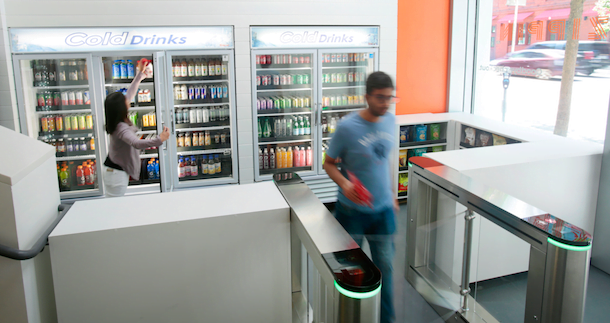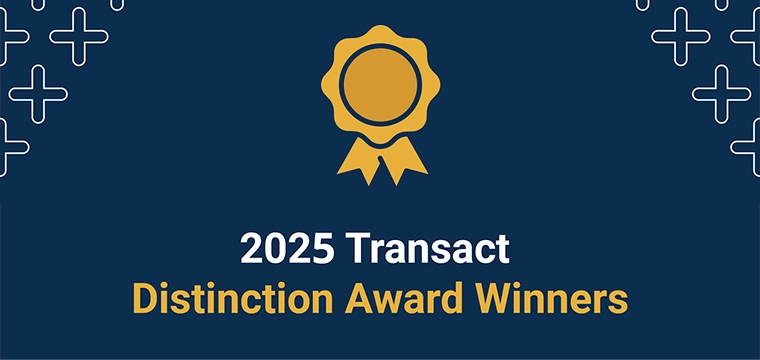
Campus card system vendor, Atrium, has teamed with retail technology vendor Zippin on a push designed to bring checkout-free meals, grocery shopping and retail to colleges and universities. The concept is similar to what Amazon is doing with its own grocery stores.
As grocery shopping becomes more automated across the country, Atrium, provider of mobile card management services to colleges and universities, plans to bring checkout-free retail to campuses.
They have teamed with Zippin, developer of the machine learning, artificial intelligence and sensor technology needed for checkout-free transactions, to deploy those systems to campus dining halls and retail operations.
Zippin founders have worked at Amazon and other to deploy similar technology. Amazon is by most accounts the leader of checkout-free grocery shopping, a cutting-edge area of commerce and technology that is receiving increased interest from investors, store operators and consumers — and now, through this new partnership, to campuses.
Unlike mere self-checkout – which requires shoppers to stop at unmanned but often supervised kiosks to complete transactions before leaving a store – checkout-free retail does away with that final step, ideally eliminating lines and waiting altogether, making shopping more efficient.
Such retail technology appeals especially to college students, says David McQuillin, co-founder and VP of sales for Atrium, in a recent interview with CampusIDNews. “Gen Z wants it. It’s what they expect. They want to use their mobile phone for everything.”
The concept that Atrium and Zippin are touting is simple enough, even though in practice it can present challenges. Campus administrators need to think about those potential hurdles sooner rather than later if they want to tap into this technology, which, McQuillian notes, could help them deal with a lack of workers.
Consumers using this particular technology could set up links with the platform via mobile phones. Zippin supports such payment options as credit and debit cards, and Apple Pay and Google Pay, though students would also be able to pay via their campus card accounts.
“Retailers with the technology would use overheard cameras to track shoppers and smart shelf sensors that detect when specific items are removed or returned,” explains McQuillin. “Together, the system builds a virtual cart for a shopper and does so without storing personal data, which would risk privacy breaches.”
“We see it working in a mixed retail environment, including ready-made foods and coffee with coffee machines, not just dry goods,” McQuillin says. The goal is to let shoppers leave the store as the transaction processes automatically.
The student who wants to eat a meal or purchase a product would set up their desired default payment type, and they could also use the system for meal exchanges, he says.
In fact, setting up those campus meal exchange programs as part of the checkout-free experience stands as perhaps the main challenge.
“There is a lot more to this than the typical integration of the mobile ordering experience,” he says. “Meal exchange is definitely the more complicated part of it.”
Atrium and Zippin — much like Amazon and other players in this space — know that the “cool factor,” as McQuillin put it, provides a big part of the appeal of this type of campus technology. But the ongoing struggle of many institutions to find and retain workers during the ongoing nationwide labor shortage also promises to help Atrium and its partner sell colleges and universities on this plan for checkout-free commerce.
“This has real advantages for those institutions,” says McQuillin.
Affixing a cost to this technology is not easy and will vary according to the square footage of the space in question.
According to McQuillin, Zippin will provide the equipment and service, with installation left to the college or university, or its food service provider. Using this type of checkout-free technology on campus will also incur a recurring operational cost via a software-as-a-service model.
“So far, four or five campuses have come to us about the checkout-free technology,” says McQuillin. “They want to be first adopters.”
Though he would not reveal the names of the institutions, he did say that they include some the largest in the U.S. He expects to be production-ready in September, with a first checkout-free rollout in spring 2023.




